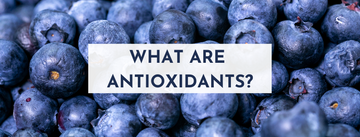When you take antibiotics, they might upset your stomach and cause issues like stomach pain, feeling sick, or diarrhea. But don't worry, there are things you can do to feel better.
Antibiotics are strong medicines used to treat bacterial infections. However, they can sometimes mess up the balance of good bacteria in your belly, leading to tummy troubles like stomach pain.

Here’s what you should know about stomach pain caused by antibiotics, including why it happens, how long it might stick around, and ways to make it better.
Can Antibiotics Treat Stomach Pain?
Antibiotics can't treat viral gastroenteritis because it's caused by a virus, not bacteria. However, bacterial gastroenteritis, often known as food poisoning, can be treated with antibiotics.
Various bacteria can cause food poisoning, including:
- Campylobacter
- Listeria
- Salmonella
- Shiga toxin-producing Escherichia coli
- Shigella
- Vibrio
- Yersinia
Even though antibiotics can help with bacterial gastroenteritis, not everyone needs them. This is especially true if the bacteria causing the illness produces the Shiga toxin, like some strains of E. coli.

In some cases, doctors may recommend antibiotics such as azithromycin or fluoroquinolones like ciprofloxacin if a person has certain symptoms like:
- Having more than 6 stools per day
- Have a fever
- If hospitalization is required.
Additionally, antibiotics may be prescribed:
- If a person is over 70 years old
- Pregnant
- It has a weakened immune system
- Other health conditions that increase their risk of infection.
How Do You Stop Stomach Pain From antibiotics?
To prevent or ease stomach pain and other digestive issues while taking antibiotics, you can try the following methods:
1. Eat Probiotics
Probiotics are live bacteria found in certain foods and supplements. They are beneficial for restoring the natural balance of bacteria in your gut. Research suggests that probiotics may help during antibiotic treatment by preventing or reducing digestive problems like diarrhea.
Common probiotic foods include:
- Yogurt: A dairy product fermented with beneficial bacteria, such as Lactobacillus bulgaricus and Streptococcus Thermophilus, which can help improve gut health.
- Kimchi: A traditional Korean side dish made from fermented vegetables, typically cabbage and radishes, seasoned with spices like chili pepper, garlic, and ginger. It contains probiotic bacteria like Lactobacillus Kimchi.
- Sauerkraut: Fermented cabbage that is rich in probiotics, particularly strains of Lactobacillus bacteria. It's commonly used as a condiment or side dish.
- Tempeh: A fermented soybean product originating from Indonesia. It contains probiotics like Bifidobacteria and may offer various health benefits when consumed regularly.
- Kombucha: A fermented tea beverage made from black or green tea, sugar, and a symbiotic culture of bacteria and yeast (SCOBY). It contains probiotic strains like Acetobacter and Saccharomyces cerevisiae.
- Pickles: Cucumbers that have been pickled in a brine solution containing salt, water, and sometimes vinegar. Fermented pickles can contain probiotic bacteria like Lactobacillus
You can also take probiotic supplements, which contain various bacterial strains. When choosing a supplement, look for one with:
- 5–10 different strains and
- A dose of 10 billion CFUs (colony-forming units) or higher.
It's best to take probiotics a few hours before or after taking antibiotics to ensure that the antibiotic doesn't interfere with the probiotic's effectiveness. Discuss with your doctor about incorporating probiotics into your antibiotic treatment plan.
2. Try Prebiotics
Prebiotics are special kinds of fiber that act as food for the good bacteria in your gut. They help these bacteria produce important nutrients, that keep your gut healthy.

Source: Eating probiotics is like planting new seeds (of good bacteria) in a garden (your gut).
Some studies suggest that prebiotics might help reduce the side effects of antibiotics, like stomach issues.
Foods that are rich in prebiotics include:
- Asparagus
- Bananas
- Blueberries
- Flaxseeds
- Garlic
- Jerusalem artichokes
- Onions
- Soybeans
- Spinach
- Whole grains.
You can also find prebiotics in dietary supplements, but some people might experience mild discomfort like bloating or gas. It's always a good idea to talk to your doctor before trying any new supplements to make sure they're right for you. They can help you figure out which foods or supplements might help ease your stomach pain while you're on antibiotics.
3. Eat Smaller Meals
Instead of large meals, try eating smaller portions of food. Big meals can upset the balance of bacteria in your stomach and lead to bloating, cramps, or other digestive problems. Once you finish your antibiotics, you can go back to your usual eating habits.
4. Stay Hydrated
Drink plenty of water throughout the day. Water helps to flush out your digestive system, which can reduce side effects like constipation and stomach discomfort. It also helps to thin the mucus lining your stomach, which might prevent irritation.
5. Take Pills with Meals if Advised
Some antibiotic labels recommend taking the medication with food. This can help reduce stomach issues as the medicine gets absorbed. Your doctor will let you know if you should take your antibiotic with food, so make sure to follow their advice carefully.
Most Common Side Effects of Antibiotics
The most common side effects of antibiotics can include:
- Nausea
- Vomiting
- Cramps
- Diarrhea
- Stomach pain
- Loss of appetite
- Dizziness
- Rash
- Yeast infections
These side effects are usually mild and go away once you finish your treatment. If you develop a yeast infection, you may need treatment with an antifungal medication like fluconazole.
However, there are rare but serious side effects to watch out for, such as:
- Clostridium difficile (C. diff) infection, which causes severe diarrhea and can damage the colon
- Allergic reactions, including anaphylaxis
- Antibiotic-resistant infections
If you experience any prolonged or severe side effects while taking antibiotics, it's important to talk to your doctor right away.
In Summary
Stomach pain is a frequent side effect of antibiotics because they upset the natural balance of bacteria in your gut.
Other common side effects include nausea, diarrhea, and bloating. Fortunately, these side effects are often mild and go away on their own within a few days.
To help prevent or alleviate these symptoms, you can try consuming prebiotics and probiotics. Additionally, eating smaller meals, staying hydrated by drinking plenty of water, and taking antibiotics with food if advised can also provide relief.








